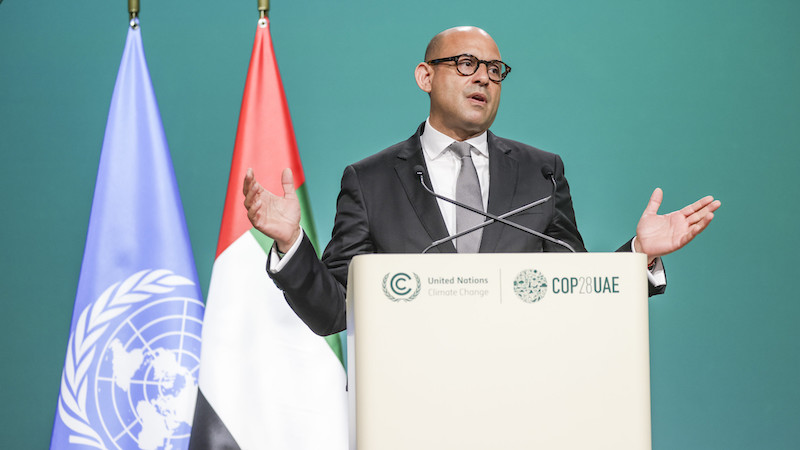UNFCCC chief Simon Stiell has made an urgent plea to plug the body’s funding gap with government donations
The UN’s climate body (UNFCCC) is facing “severe financial challenges” as the ability to fulfill its expanding workload is being put at risk by governments’ failure to provide enough money.
The UNFCCC executive director Simon Stiell made an urgent plea for more funding to over 40 ministers and negotiators gathered on Thursday in Helsingør, Denmark, for the first major climate summit of the year.
“Our organization, the UNFCCC, now faces severe financial challenges,” he said. “We are attempting to meet an ever-growing mandate. Our job is to make your job easier. To carry out the tasks you have all agreed we should do, but we can only do this if we have the funding support.”
Stiell highlighted that the organisation’s budget “is currently less than half funded”.
Budget headache
The UNFCCC estimated it needed around €152m ($165m) in the 2024-2025 period to carry out an ever-growing number of activities that countries ask the climate body to be in charge of.
But, in Bonn last June, countries agreed only to a core budget of €74m ($80.4m) with compulsory contributions provided by governments based on their wealth. This was a 19% increase on the previous two years’ budget, ignoring inflation.
That left the climate body with a hole of €78m ($85m) that would need to be filled with voluntary donations from governments and private entities.
This money is needed to arrange dozens of meetings across the world on key negotiating strands like the new climate finance goal – to be agreed at COP29 – the global goal on adaptation and a new carbon market under Article 6 of the Paris Agreement.
Voluntary donations missing
But, so far this year, the UNFCCC has managed to raise less than $9m in voluntary donations. The United Kingdom has given the largest sum – $2.1m – followed by the Open Society Foundations ($1.5m), the Rockefeller Foundation ($1.3m) and Germany ($0.9m).
The climate body is also scrambling to collect millions of dollars in compulsory contributions that countries failed to fork out in previous years.
African dismay at decision to host loss and damage advice hub in Geneva
The funding shortfall is fuelling a sense of angst among UNFCCC staff, who are forced to constantly find new ways to shuffle money around in emergency mode without any long-term cer
Read More

